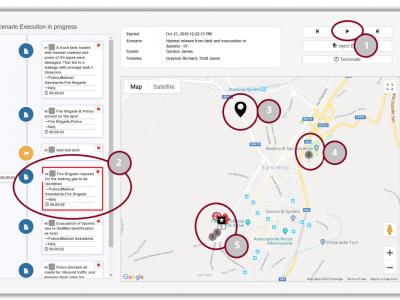Forest fires: fire ecology
Understanding ecosystem's vulnerability and potential to adapt to such changes can help developing proactive and post-fire regeneration strategies.
Potential Solutions
In fire driven areas, ecosystems possess structural and functional characteristics that were selected over time, and that allow them to cope with fires. Understanding how ecosystems respond to fire is important for managing them in a context where fires are prevalent. However, fire regimes are not stable nowadays in southern Europe, due to changes in land-use, human pressures and climate, among other drivers. Understanding how ecosystems will respond to changes in (e.g., increased fire frequency, severity, timing) and climate (e.g., increased temperature and decreased rainfall), or past land-use history and management is critical for assessing their vulnerability and capacity to provide their services.
In the short term, changes in fire drivers and regime can elicit variations in species composition, structure and functioning, which may further interact with fire drivers to further affect fire regimes. Understanding ecosystem's vulnerability and potential to adapt to such changes can help developing proactive and post-fire regeneration strategies.
Rationale & related CM function(s)
 |
Portfolio of Solutions web site has been initially developed in the scope of DRIVER+ project. Today, the service is managed by AIT Austrian Institute of Technology GmbH., for the benefit of the European Management. PoS is endorsed and supported by the Disaster Competence Network Austria (DCNA) as well as by the STAMINA and TeamAware H2020 projects. |

